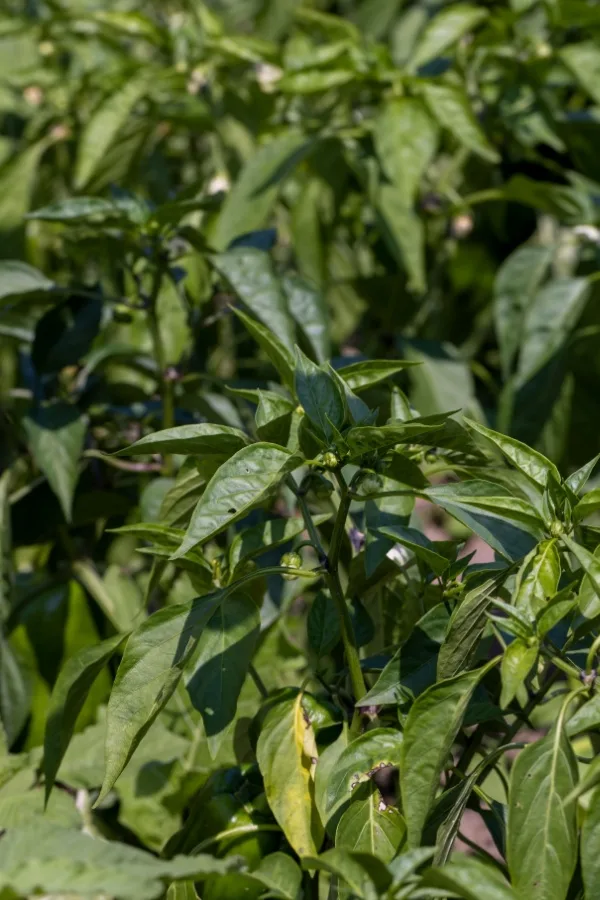Organic Vs. Synthetic Fertilizers: Which Is Best for Nurturing Healthy Pepper Plants?
In the realm of nurturing healthy pepper plants, the choice between organic and artificial fertilizers stands as a crucial choice with significant ramifications. While both choices objective to provide essential nutrients to sustain plant development, the nuances of their influence on the dirt, plant health and wellness, and the setting trigger a discussion that mirrors throughout the gardening area. Recognizing the unique advantages and prospective mistakes of each fertilizer kind is critical for pepper cultivators seeking to maximize their yields while maintaining an eco-conscious and sustainable approach.
Advantages of Organic Fertilizers
Organic plant foods use a sustainable and environmentally-friendly method to nourishing pepper plants, supplying important nutrients without using artificial chemicals. These all-natural fertilizers are originated from organic resources such as compost, manure, bone dish, and seaweed, advertising soil wellness and biodiversity. Unlike synthetic plant foods, organic options launch nutrients gradually, making certain a well balanced and stable supply for pepper plants to thrive.
One substantial benefit of organic plant foods is their capability to boost soil framework and water retention. By improving dirt health and wellness, natural plant foods advertise helpful microbial activity, which assists in nutrient uptake by pepper plants. Furthermore, organic plant foods decrease the risk of chemical run-off, protecting water sources from air pollution and guarding the environment.
In addition, organic plant foods add to lasting dirt fertility by promoting the development of helpful soil organisms. These microorganisms help break down natural issue, launching nutrients in a type that is quickly accessible to pepper plants. best fertilizers for peppers. By fostering a healthy and balanced dirt environment, organic plant foods sustain lasting pepper cultivation methods that profit both plants and the setting
Disadvantages of Artificial Plant Foods
Artificial plant foods, in contrast to their organic counterparts, pose various disadvantages when made use of to nurture pepper plants, affecting both plant health and ecological sustainability. One significant disadvantage of synthetic fertilizers is their propensity to seep nutrients from the soil quickly.
Furthermore, the overuse of synthetic plant foods can add to water pollution. Excess plant foods not taken in by plants can get rid of into water bodies, bring about eutrophication, where algae blossoms diminish oxygen degrees in the water, hurting water life. Artificial fertilizers are commonly obtained from non-renewable sources, such as fossil fuels, adding to carbon discharges and environmental deterioration during their manufacturing.
Nutrient Absorption Contrast
When comparing natural and artificial fertilizers in terms of nutrient absorption, natural plant foods have the benefit of providing a more well balanced and slow-release source of nutrients. Organic fertilizers have a variety of macro and micronutrients that are not just beneficial for the plants but likewise advertise healthy dirt microbial activity, which aids in nutrient these details uptake.
Moreover, natural fertilizers enhance soil structure and water retention capacity, allowing pepper plants to access nutrients much more effectively. This enhanced dirt high quality assists in origin advancement, enabling better nutrient absorption. Synthetic plant foods, although originally boosting plant development as a result of their high nutrient focus, might impede lasting nutrient absorption by derogatory dirt wellness in time.
Ecological Impact Factors To Consider

On the other hand, artificial fertilizers, although usually even more immediately readily available and concentrated to plants, can have detrimental results on the environment otherwise applied properly (best fertilizers dig this for peppers). Their manufacturing requires high energy inputs, causing greenhouse gas emissions and contributing to environment change. In addition, the runoff of excess artificial fertilizers can infect water sources, bring about eutrophication and hurting aquatic ecosystems.
Best Fertilizer Practices for Peppers
To accomplish this, it is important to adhere to finest plant food practices tailored to the details needs of pepper plants. One critical technique is to do a soil examination before applying any kind of plant foods.
One more important method is to fertilize pepper plants at the ideal time. Usually, peppers gain from receiving plant food at planting and after that once again when they begin to flower. Over-fertilizing can bring about nutrition imbalances and harm the plants, so it is crucial to comply with recommended application prices.
In addition, selecting a balanced fertilizer with an NPK proportion that fits pepper plants' demands is fundamental. Organic plant foods, such as garden compost or manure, can be exceptional choices as they release nutrients gradually and enhance soil framework with time. Synthetic fertilizers can provide a fast nutrient boost when required. Ultimately, integrating organic and artificial plant foods carefully can help support healthy pepper plants while lessening environmental influence.
Conclusion

Organic fertilizers use an environmentally-friendly and lasting strategy to nourishing pepper plants, giving vital nutrients without the usage of synthetic chemicals. Unlike artificial plant foods, organic choices launch nutrients gradually, guaranteeing a constant and balanced supply for pepper plants to flourish.
Artificial plant foods, in contrast to their organic counterparts, posture various downsides when made use of to nourish pepper plants, impacting both plant health and wellness and ecological sustainability. When comparing organic and synthetic plant foods in terms of nutrient absorption, natural fertilizers have the benefit of giving a more balanced and slow-release resource of nutrients.Furthermore, organic fertilizers enhance soil structure and water retention ability, permitting pepper plants to accessibility nutrients more effectively.
 Jennifer Grey Then & Now!
Jennifer Grey Then & Now! Michael J. Fox Then & Now!
Michael J. Fox Then & Now! Christina Ricci Then & Now!
Christina Ricci Then & Now! Mike Vitar Then & Now!
Mike Vitar Then & Now! Justine Bateman Then & Now!
Justine Bateman Then & Now!